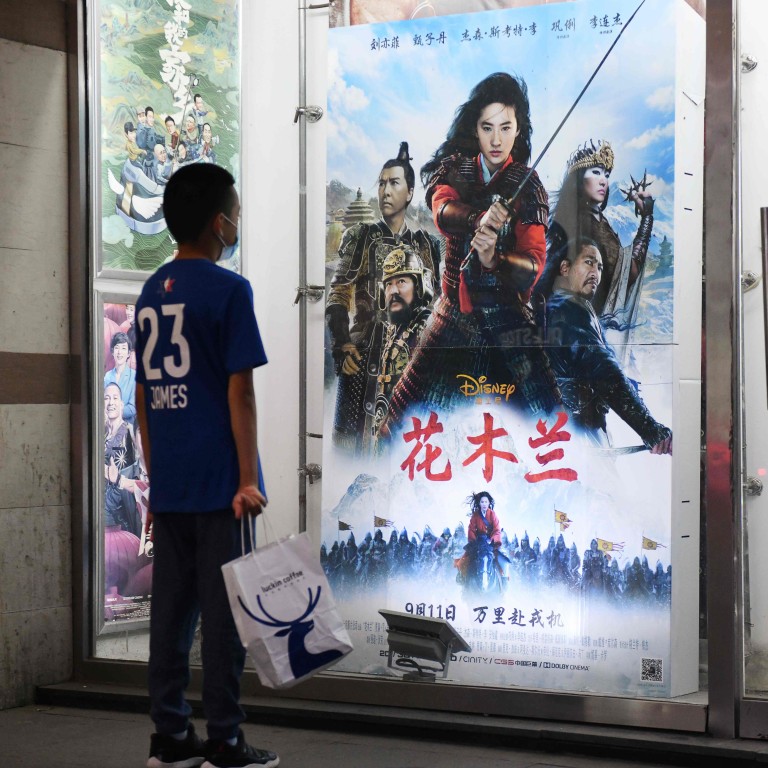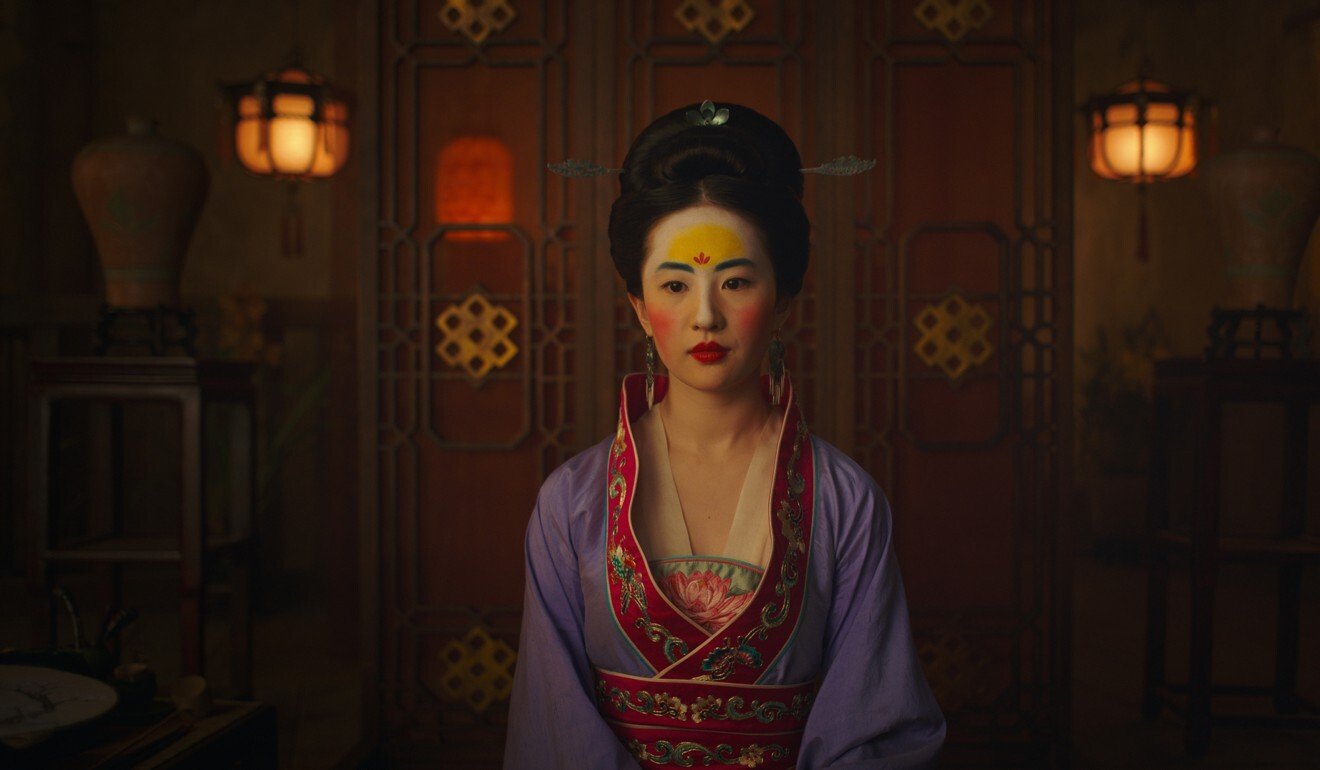
How Disney’s misconceived Mulan lost the Chinese audience it so cravenly courted
- Disney lost Chinese film-goers because they watched Mulan through a magnifying glass, looking for errors of cultural representation and historical inaccuracies
- They found plenty. For starters, Disney doesn’t understand qi. On top of that are plot changes, dire action scenes, bland characters and lifeless acting
Towards the middle of Disney’s live-action remake of Mulan, the shape-shifting witch Xian Lang, played by Gong Li, finally encounters Liu Yifei’s Hua Mulan on the battlefield. Although Mulan is disguised as a man, Xian sees her true identity and tells her: “You will die pretending to be something that you are not.”
There is perhaps a lesson for Disney in these words.
Mulan is supposed to be just another Disney princess in a Chinese outfit – and the desire to be free and independent is seen in all iconic Disney characters, from Jasmine in Aladdin to Elsa in Frozen. But themes of freedom and independence are taboos for a film targeting the vast China market, so if a Chinese dress is to be given to a Disney princess, some tweaks are necessary.
Perhaps understanding this, Disney appears to have decided to infuse as much “Chineseness” into the film as possible to please China, the world’s second-largest film market, and its censors in order to get the film screened.

So what should be added? Mulan must be loyal to the country and be willing to sacrifice her life to protect the emperor; and must live to bring honour to both her family and her country. Such elements aimed at boosting China’s national pride should work like magic, right?
Disney might have thought it had a sure thing by selling Mulan as a Chinese story adapted from a Chinese legend with an ensemble Chinese cast. But Disney was – to paraphrase former Chinese president Jiang Zemin’s famous admonition to the Hong Kong press – “too simple, sometimes naive” to think that the big bucks would roll in just like that.
Disney’s controversy-laden Mulan set to bomb in China
But Disney’s most spectacular failure was its inability to understand the burden of history that weighs on almost every Chinese person’s shoulders when it comes to a watching Chinese story told by the West.
Chinese film-goers are sensitive and not to be offended – they will watch the film with a magnifying glass, focusing on every single detail, from the costumes to action choreography to (more importantly) the historical accuracy and cultural representation. To them, Mulan is not just another Disney princess, but an icon that supposedly represents the best of Chinese values.

This is where Disney lost the Chinese audience it has so desperately tried to win over. An embarrassing score of 4.9 out of 10 recorded on movie review website Douban – the Chinese equivalent of Rotten Tomatoes – would be hard to swallow for the film’s award-winning New Zealand-born director, Niki Caro, and the four Western writers who penned the script.
“Solid proof that Americans cannot tell a Chinese story well,” one user wrote on Douban. Another one said: “Please Americans, do not touch our Chinese culture. You don’t understand a thing. All I can see is deep-rooted arrogance and prejudice.”
Critics quoted in the Global Times – an English-language newspaper under the Chinese Communist Party mouthpiece People’s Daily – went further, blasting historical inaccuracies and misunderstanding of Chinese culture throughout the film. The newspaper called it “a mixture of oriental elements and symbols in the eyes of Westerners” and said Western fairy tales were incompatible with traditional Chinese stories.
This is a disaster made worse by the fact that the Beijing mouthpiece once promised that Liu and Mulan had the full support of the 1.4 billion Chinese people during the heat of the #BoycottMulan movement.
In the four days since the film opened in China on Friday, Mulan has so far brought in just US$23.2 million at the Chinese box office. This puts it on the low end of Disney film debuts in China and below the US$30 million the Christopher Nolan spy thriller Tenet generated the previous weekend. The restrictive reopening of cinemas in China after the coronavirus outbreak likely affected the figures, but the film’s poor reception is unlikely to help Disney rake in the big bucks it dreamed of.

Surely the film’s epic fighting scenes would find favour in the land of wuxia films? Unfortunately not – the Chinese audience has been spoiled by numerous home-grown, big-budget productions during the past decade. Mulan’s fighting scenes – particularly the wire work – are so bad that some internet users even apologised to Chinese director Zhang Yimou for previously criticising his action fantasy epic The Great Wall.
The new Mulan is a lacklustre feature saturated with bland characters who convey little emotion. Liu’s emotionless performance is unbearable, and the choppy editing and scriptwriting make the film painful to watch. But worst of all is the misunderstanding and misinterpretation of qi throughout the film. Please Hollywood, just stop.
Disney has bent over backwards in the hope of making a splash in China with its “Chinese story”, and the appalling outcome, one that has upset both the West and China, is probably Hollywood’s most arresting plot twist ever.
The studio that has brought so much joy to people across the world has forgotten what it does best. Like Mulan herself, Disney is pretending to be something that it’s not, as it succumbs to an insatiable hunger for Chinese yuan.
Will Hollywood learn any lesson from this fiasco? Probably not, as long as it continues to bow down and beg for cash from the middle kingdom.

